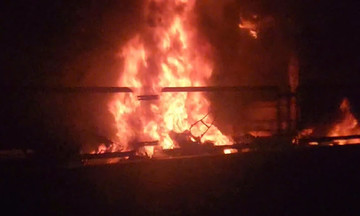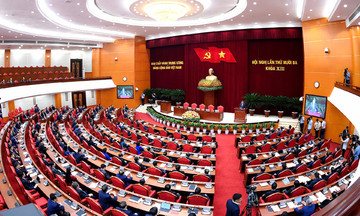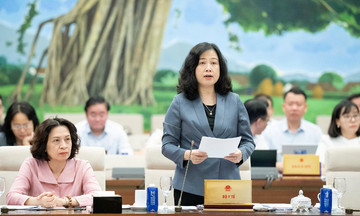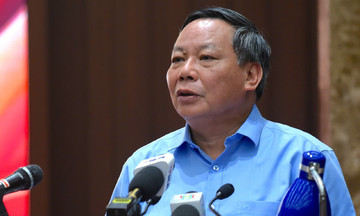In late August, in her home in Mo Cay (formerly Ben Tre province), 86-year-old Nguyen Thi Tam lit incense for her husband. Her gnarled hands, she said, bear the marks of torture.
After the 1954 Geneva Accords, Ngo Dinh Diem's regime established outposts and suppressed revolutionary movements in southern Vietnam. In Ben Tre alone, by the end of 1959, thousands were killed and over 17,000 imprisoned. Of over 2,000 party members, only 162 remained.
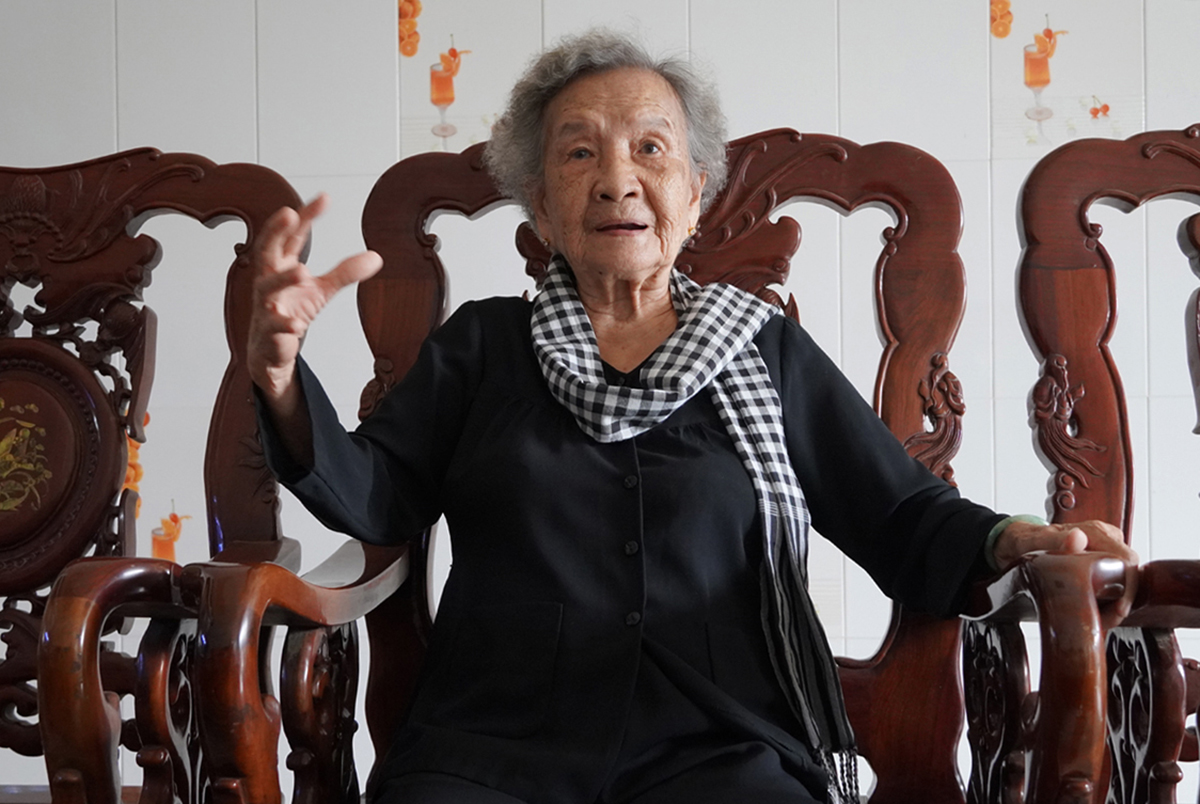 |
Nguyen Thi Tam recounts her days in the long-haired army. Photo: Hoang Nam |
Nguyen Thi Tam recounts her days in the long-haired army. Photo: Hoang Nam
In early 1/1960, the Ben Tre Provincial Party Committee launched a people's uprising in three communes: Dinh Thuy, Binh Khanh, and Phuoc Hiep (Mo Cay district). The movement spread, becoming the "Dong Khoi" (Simultaneous Uprising) movement.
From this emerged the "long-haired army," composed of rural women, unarmed, yet playing a crucial role. Led by Nguyen Thi Dinh (later Vice President of Vietnam), their numbers at times reached millions.
Nguyen Thi Tam, then just 16, started by sharpening bamboo stakes, digging tunnels, and disrupting roads. By 22, she became the deputy head of the commune's struggle committee.
The women's forces were divided into three groups: The first, direct assault, mainly comprised strong young women and relatives of soldiers. The second group provided reinforcements, demanding the release of anyone captured. The third, logistics, consisted of older women who cared for homes and children.
Tam's regular task was "market stuffing," making multiple trips daily to observe enemy activity. When the enemy raided, looted, or assaulted women, the army organized "reverse evacuations": Thousands of women, wearing mourning bands, carrying children and leading slaughtered livestock, marched to the enemy's district headquarters to demand justice.
One day in mid-1961, Tam was tasked with delivering a protest letter. A group of 200 marched to the Huong My commune post but were detained. Tam escaped and returned to report. The committee mobilized 400 more for support.
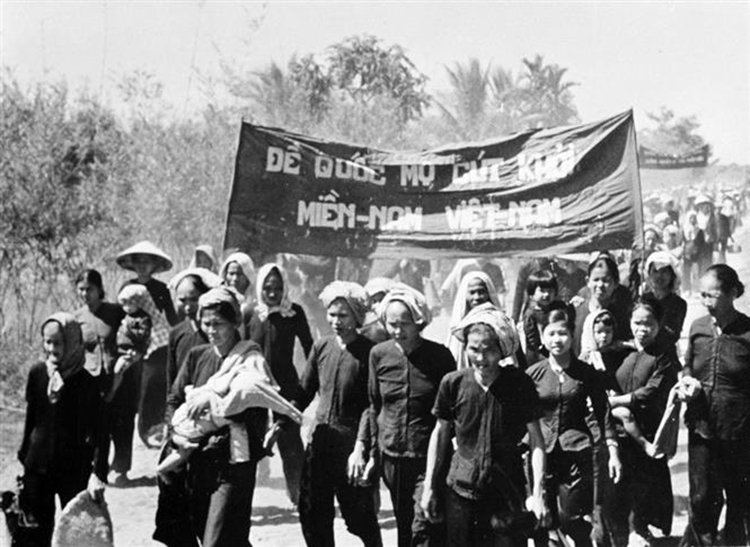 |
The long-haired army of the coconut land during a protest. Photo: Archive |
The long-haired army of the coconut land during a protest. Photo: Archive
The enemy, fearful, opened fire on the women. "A woman right in front of me was shot and killed, eight others also fell," Tam choked back tears.
She was then captured, exposed to the sun, starved, and taken to town. Interrogation lasted months.
The enemy tortured her with electricity, repeatedly causing her to lose consciousness. They crushed her hands, demanding she reveal the organization. She only replied, "I was arrested at the market. I know nothing about the struggle." After three months, with no information gained, they released her.
Upon her return, hundreds of members and villagers welcomed her. She continued her work in the women's movement and became the district youth union secretary.
In 1968, she married. Her first son was less than a month old when her husband died. Leaving her son with her brother, she resumed her activities. After reunification, when her son, now 7, met her again, he bewilderedly asked, "Who is this woman who wants me to call her mother?"
A few kilometers from Tam's house, 86-year-old Nguyen Thi Cai lives in Dong Khoi commune. The same age as Tam, Cai also joined the movement early. Besides street protests, she was tasked with communicating for the Provincial Party Committee.
Her mission was to deliver letters to Nguyen Thi Dinh and provincial leaders at the base. The route, just over 2 km, was surrounded by three enemy platoons. Letters were hidden in dried banana baskets, camouflaged in multiple layers.
One day near Tet 1959, while delivering documents, she encountered a patrol. Suspicious, they demanded to carry the basket. Cai quickly said she was bringing dried bananas to her aunt for candy making and pretended to have a sore leg to stall. Seeing an acquaintance, she called out for betel leaves. This allowed her to enter the house and evade the patrol.
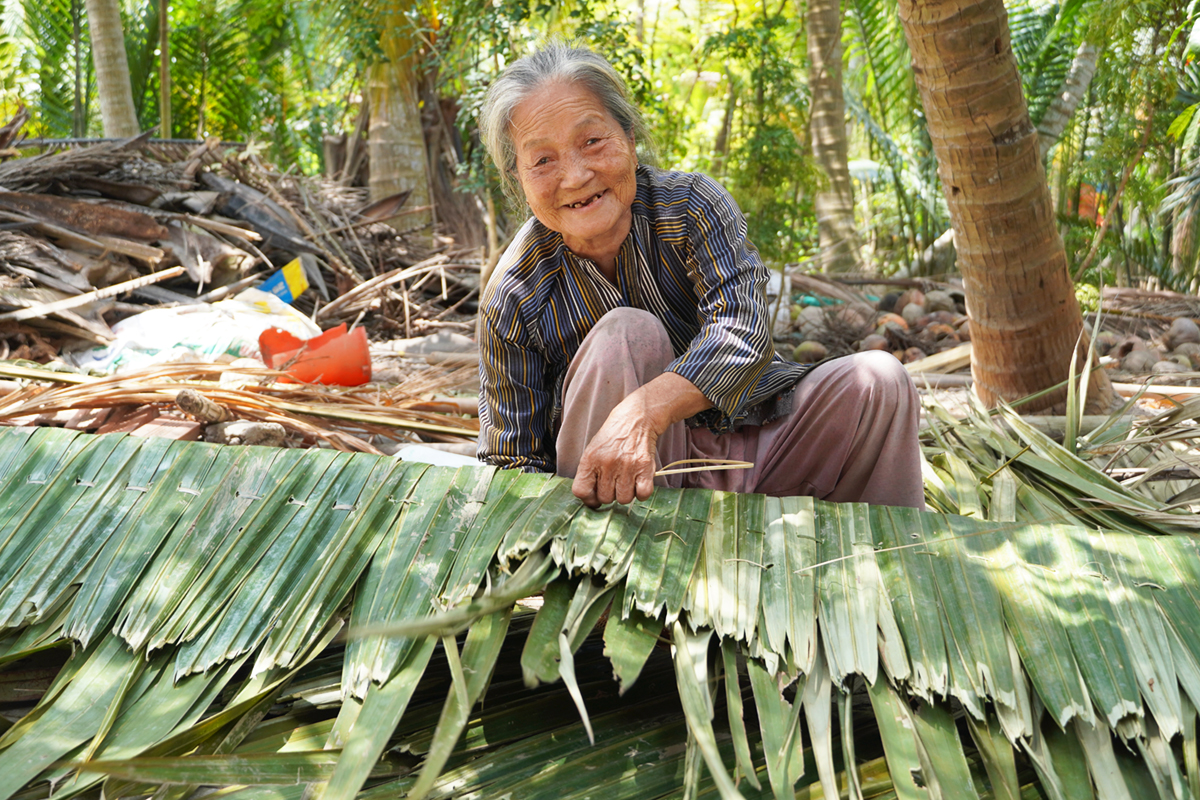 |
Nguyen Thi Cai, a veteran of the long-haired army, helps her daughter weave leaves for roofing. Photo: Hoang Nam |
Nguyen Thi Cai, a veteran of the long-haired army, helps her daughter weave leaves for roofing. Photo: Hoang Nam
On other occasions, she was imprisoned with over 20 others in a 10 m2 room. A small jar served as a shared toilet, and at night, they slept with their heads on each other. "Torture didn't work, so the enemy spread rumors that others had confessed to divide us, but they still couldn't break our spirit," Cai said.
From 1961 to 1964, the "long-haired army" and the people of Ben Tre organized 80,000 protests, involving three million people. As a result, over 20,400 people avoided conscription, over 700 houses were saved from burning, and millions were spared from looting. In early 1964, the C.710 armed company (Thu Ha troops) was formed from this force.
The achievements of the "long-haired army" are historically recognized. Numerous examples highlight the role of women in the resistance against the Americans.
In late February of this year, Ben Tre (now part of Vinh Long) held a national scientific conference on the role of the "long-haired army" and the "Three Responsibilities" movement. Nguyen Trong Nghia, Head of the Central Commission for Propaganda and Education, stated that these movements transformed women's patriotism into concrete actions, significantly contributing to the liberation of southern Vietnam and national reunification.
These victories have brought glory to the history of Vietnamese women, deserving of the eight golden words bestowed by the Party and President Ho Chi Minh: "Heroic - Indomitable - Loyal - Resourceful."
Hoang Nam



